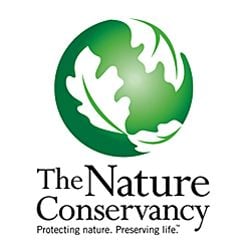We seek a Director of Science – Africa to lead and manage a comprehensive program of multidisciplinary scientific activities, research, and stewardship. This person advises Senior Leaders and Managers on broad and complex aspects of science-based initiatives. This includes providing technical, strategic, and staff leadership for the Conservancy in all areas of conservation and science connected to the Africa Region. As a Science Director, they will develop and monitor the implementation of a strategic science vision for applied Conservation Science that is aligned with TNC Global 2030 Goals and Africa strategies. They ensure that science underpins conservation priorities, policies and programs in Africa, and work to integrate Africa science activities with TNC strategies and country programs. The ideal candidate will have a track record of research, publication, and scientist supervision; apply evidence-based knowledge to inform conservation planning, public sector policies and private sector practices; be familiar with unique challenges of developing robust scientific studies in data-scarce regions; and enjoy working across Africa’s diverse geographic regions and cultures.
The Director of Science – Africa will lead and supervise a team of multidisciplinary scientists to ensure that methods, tools, capacity building, and cutting-edge science are coordinated and dispersed throughout the Africa region. They provide technical and scientific leadership for conservation initiatives across the Africa Program’s strategies and collaborate with TNC’s global teams to ensure the organization’s Conservation by Design framework is implemented in the Africa Program, and that methods, tools, and approaches used across the region help to achieve TNC’s 2030 Goals for nature and people. The Director of Science will serve as the primary contact for science within the Africa Program for the greater Conservancy and advise senior leaders and managers on broad and complex aspects of science-based initiatives.
The Director of Science will advise and support the strategic development of partnerships and collaborations through a network of internal and external scientists (e.g., other NGOs, government agencies, private sector and academic institutions). The Science Director will supervise a team of scientist to ensure successful work plans and projects while developing and disseminating viability criteria and threat abatement tools and guidelines for critical systems and communities. This involves communicating with diverse audiences, including active collaboration with Marketing and Communications in developing products and deliverables that support fundraising (private and public sources) and outreach for the Conservancy’s work.
As a member of the TNC Global Science Cabinet, they collaborate closely with Global Science and the Chief Conservation Office to provide input and scientific leadership, as required, on organizational priorities and management across the region to help achieve TNC’s 2030 Goals. Within the African region, the Science Director will also work closely with Africa Conservation and Policy Directors to ensure the best scientific methods, tools, and approaches are applied to our conservation goals and linked to policy initiatives.
The Science Director – Africa reports to the Africa Regional Managing Director and supervises the regional Monitoring, Learning, and Evaluation Specialist and Director of the Landscape Science Team. The position can be based in any location in Africa where TNC has an office (Kenya, Angola, Gabon, South Africa Tanzania, or Zambia,); relocation costs may be allocated if the person does not live in the previously mentioned countries.
Specific functions include:
- Undertakes and leads applied scientific research to assist Africa leadership in determining priority areas and geographies for the Conservancy’s work in Africa – in alignment with TNC’s 30 by 30 Goals, including by designing and testing conservation interventions, and predicting the impact of potential strategies for nature, climate, and people.
- Works with regional and country teams in Africa to address science capacity gaps and identify opportunities for strengthening evidence-based decision-making and ways to optimize resources and impacts to support program implementation. They will work to further share knowledge and synergies across teams in Africa.
- Facilitates the deployment of global and regional science resources and expertise for the development, execution, and integration of work streams in connection with the Africa Program strategy, ensuring that there is a good flow of communication between functions and assisting, as necessary, in making relevant connections others across Africa and TNC more broadly.
- Collaborates with a wide range of conservation partners (in TNC at local, regional, and global levels) to identify research needs, present technical concepts, and support fieldwork.
- Support TNC Africa’s partners in co-developing scientific strategies, including but not limited to capacity building.
- Builds solid collaborative networks within and outside TNC in support of conservation strategies. Works with country and regional teams to establish partnerships with universities and institutions to support and advance a research agenda to support African conservation strategies.
- Communicates with scientists and non-scientist conservation practitioners, philanthropy, government relations, and marketing/communications staff, and serves as a spokesperson and advocate for Conservancy initiatives in coordination with the Africa Conservation and Policy Directors.
- Advocates for and raises the visibility of TNC.
- Pursues public and private grant funding to support mission-critical science needs.
- Coordinates, advises and coaches African staff to ensure that science tools, methods, and metrics capabilities are available to all African countries. Provides training and mentoring to African staff on ecological and conservation scientific principles.
- Promotes inclusion, a diverse workforce, diversity of thought, and shared ownership and commitment to the organization’s highest priorities.
- Actively supports a culture of accountability for execution and results.
- Requires frequent domestic and international travel and may work in variable weather conditions at remote locations, hazardous terrain and/or under physically demanding circumstances.



